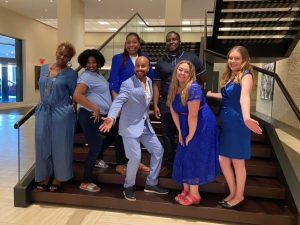Fearless with your finances- Money management tips from account Carrie Sheffeld, MBA

During the Fearless Stenographers Conference, we caught up with Carrie Sheffeld, MBA who is a stellar accountant. We were able to get some fearless financial tips from this savvy professional. JA: As a recession looms, how should we plan? JA: As a recession looms, how should we plan? CS: Many experts say we’re already in a recession while others say it’s coming. Inflation increased to 9.1% in June, the highest
A rising steno star attends the Fearless Stenographers Conference!

ROSE DETLOFF- RMR, CRR Interview with Student McKalie Bellew Interview with Student McKalie Bellew I know how cliche this will sound but hear me out. The dictionary defines a “prodigy” as, “a person, especially a young one, endowed with exceptional qualities or abilities”. Rose is the definition of that word in all the best ways. A talented, yet humble, and kind young woman that flew through her school journey and

